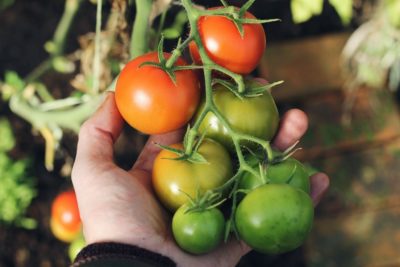Home gardening is becoming an increasingly popular activity these days. It is useful in every area of your life and every area of your home.
In this time of crisis, it’s best to try to become more self-sufficient as much as possible. Growing plants is also a great way to reinvigorate in a time of uncertainty and isolation. The psychological benefits of gardening are scientifically proven. Caring for your own plants may help you cope with feelings of isolation, lack of motivation, and low self-esteem. Home gardening also allows us to improve our health by adding more fruits and vegetables to our diet. Lastly, backyard gardening is a great exercise for those confined to their homes.

Here are home gardening tips to get you going:
Start Indoors
Start your veggies inside before moving them outdoors. Once the veggies started growing, you can easily transplant the plants to a large pot or right into the ground.
Plant in Moist Soil
Organic materials are necessary for your plants to receive nutrients. A nutrient-rich, moisture-retaining, well-draining soil is usually the ideal mix for most plants. Plant veggies in a raised bed for improved drainage. Till and remove the rocks if you have rocky soil.
Follow the Sun
Pay attention to how the sunlight shines through your yard before choosing a place for your garden. Most vegetables, herbs, and fruits, need at least 6 hours of sun in order to thrive.
Water your Plants Regularly
Plan your garden near a water source. Make sure you can run a hose to your garden site. The best way to tell if plants need watering is to push a finger an inch down into the soil. If it’s dry, it’s time to water!
Limit Bed Size
Keep planting beds narrow, no more than four feet wide. To keep wood costs down limit your raised beds to one foot tall. Go taller if you would like to minimize bending over.
Expect Pests
Reliant only on organic pest-control practices, like hand-picking insects off plants, fencing to keep out critters, and applying neem oil, You will inevitably lose some vegetables to pests, but if you plant extra you can account for the loss.
Practice Succession Planting and Crop Rotation
After the weather heats up and spring crops such as alliums, radishes, and greens come out, replace them with heat-loving summer squash, bell peppers, tomatoes, basil, and wax beans.
Start Small
One of the most common mistakes that beginners make is planting too much too soon. Plan your garden with care, start small, and only grow what you’ll need.

Gardening can be daunting at first, but it is an incredibly rewarding hobby to get into. This low-stakes, high-reward hobby is one that truly allows us to slow down. Getting a few plants to grow is relaxing and inspiring. There’s nothing quite like garden-fresh vegetables, especially if you grow them yourself! ???

